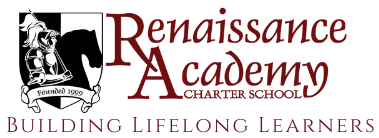
In Pennsylvania (PA), all charter schools are publicly funded and operate independently from the traditional public school system. It is established and authorized through a local school district or state charter. Charter schools provide families with an alternative educational option, promoting innovation and flexibility in teaching and learning.
The Phoenixville Area School District has authorized Renaissance Academy Charter School since 1999. The charter school was initially founded under a management agreement but has operated independently since approximately 2005.
Here are some key characteristics of charter schools in Pennsylvania:
Publicly funded: Charter schools in PA are publicly funded and receive taxpayer dollars to operate. They do not charge tuition fees and are open to all students within the state, subject to enrollment capacity.
Independent governance: Charter schools have independent governance structures overseen by a board of trustees or directors. This structure allows them to make decisions regarding curriculum, instructional methods, and school policies within the parameters outlined in their charter. Trustees at Renaissance can be community members, family members of enrolled students, or alumni.
Charter agreement: Charter schools in PA operate under a charter agreement, a legally binding contract between the school and it's authorizing entity (usually a local school district or the state's Charter School Office). The charter specifies the school's goals, mission, academic programs, and other operational aspects. A Charter must be renewed every five years under stipulations set by the authorizing district.
Flexibility and autonomy: Charter schools have more flexibility and autonomy than traditional public schools. They can design their curriculum, teaching methods, and school policies, allowing for innovation and customization based on the school's educational philosophy and goals. This local control also ensures that every charter school is slightly different, and parents can choose the style or emphasis of their child's school.
Accountability: While charter schools have more autonomy, they are also accountable for their performance. They are required to meet certain academic and operational standards outlined in their charter. If a charter school fails to meet these standards, it can face consequences such as non-renewal or revocation of its charter. Some key accountability measures in PA include the mandated Charter Annual Report, Annual High Stakes Testing (PSSA, Keystones), Safe Schools Reporting, Financial Annual Reporting, etc. An example of required reporting can be found here. These requirements are updated and added regularly.
Admissions: Charter schools in PA are open to all students, and enrollment is typically determined through a lottery system if there are more applicants than available seats. Interested families will find details of the enrollment process in policy documents on the school website www.rak12.org.
It's important to note that the specific details and regulations surrounding charter schools can vary from state to state and among schools. To learn more about Renaissance Academy, please contact enrollment@rak12.org to schedule a tour.
